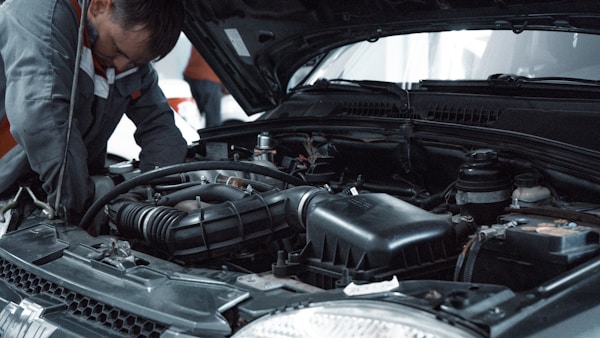As a car owner, purchasing an extended auto warranty may seem like an unnecessary expense. However, understanding what an extended warranty covers can help prevent unexpected and costly repairs down the road. In this article, we’ll delve into the basics of extended auto warranties, how to determine if you need one, and what factors to consider. Keep reading to gain insight into extended auto warranties to help you make an informed decision for your vehicle.
When should you purchase an extended warranty?

An extended auto warranty is a service contract that provides coverage beyond the initial manufacturer’s warranty period. It can be purchased at any time, but the question is— when is the right time to purchase one? In general, the best time to purchase an extended warranty is when you are buying a used car without a warranty or when your original manufacturer’s warranty is ending.
When purchasing a used car from a dealer or an individual without a warranty, an extended warranty may provide peace of mind. A used car is more likely to have unforeseen issues due to wear and tear already on the vehicle. Over time, the cost of repairs can quickly add up. An extended warranty can cover the cost of repairs and provide protection for a specified time period, reducing financial risk.
Similarly, when the manufacturer’s warranty is about to expire, purchasing an extended warranty can provide continued coverage for unexpected repairs and maintenance. An original factory powertrain warranty usually lasts five years or 60,000 miles. An original bumper-to-bumper warranty typically lasts three years or 36,000 miles. As cars age and warranties expire, they become more prone to issues and require more repairs. An extended warranty can save you from costly repairs and provide peace of mind, knowing that repairs are covered.
What does an extended warranty cover?

An extended warranty is a type of insurance policy that covers the cost of certain repairs and replacements for your vehicle after the original manufacturer’s warranty has expired. While specific coverage can vary between providers, most extended warranties will cover major components like the vehicle engine, transmission, and electrical system.
However, it’s important to note that an extended warranty won’t cover everything that could potentially go wrong with your vehicle. For example, routine maintenance like oil changes, brake pads, and tire rotations typically aren’t covered. Additionally, some providers may exclude certain components or systems from their coverage, so it’s important to carefully review the terms and conditions of any extended warranty before purchasing it.
In general, an extended warranty can provide peace of mind and protect you from unexpected repair costs. However, it’s important to shop around to get the coverage you need. Make sure you choose a reputable provider with transparent terms and conditions that align with your specific needs and budget.
How do extended warranties work?
Extended warranties are contracts sold by third-party providers that cover repairs and maintenance for a specific period beyond the manufacturer’s basic warranty. They come in handy when the manufacturer’s warranty has expired and you want to protect yourself from huge repair bills.
Once you purchase an extended warranty, you will be required to pay a monthly or yearly fee for a set period, and in exchange, the warranty provider agrees to cover any repairs and maintenance costs detailed in the contract. However, it’s crucial to remember that not all repairs will be covered, including routine maintenance or damage caused by neglect. You must thoroughly read and understand your warranty contract to avoid any unexpected fees.
When your vehicle requires repairs that are covered by your extended warranty, you will need to take it to a certified repair center. Some providers allow you to choose your own repair shop, and others offer a list of approved vendors. The repair center will diagnose the problem and contact the warranty provider to request authorization for the repairs. Once the repair is approved, you will be required to pay a deductible as specified in your contract before the warranty provider covers the remaining costs.
Overall, understanding extended auto warranties can provide peace of mind that comes with financial protection against unexpected repairs. Extended warranties can save you thousands of dollars in repair costs and provide a safety net for your family budget. By taking the time to understand the specifics of an extended warranty, you can make informed decisions when it comes to protecting your vehicle and finances.








